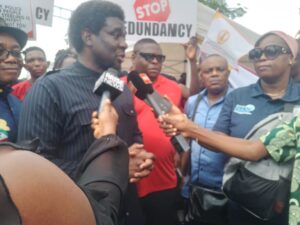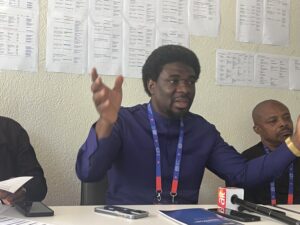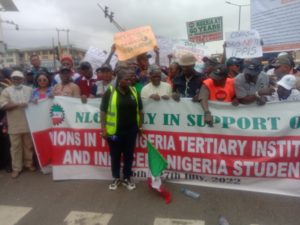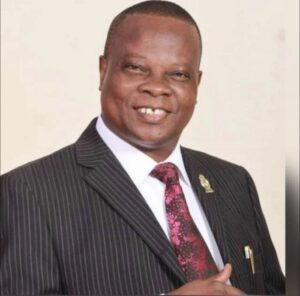Why labour call off strike – NLC

The Nigeria Labour Congress (NLC) has advanced the reasons for the suspension of the nationwide planned strike and protest against fuel and electricity increase.
According to the labour centre, major among the reason was to eradicate the culture of self centered by the Nigerian politicians and their attitude towards the poor population.
The President of the NLC, Ayuba Wabba in his Independence speech, said Organized Labour since the British imperial rule has continued to play the role of a vanguard pan Nigerian institution standing as a check to neo-liberal and anti-people policies of successive governments.
“Labour would continue to be the voice of the voiceless, the voice of caution, the voice of unity and the voice that galvanizes ‘togetherness’ towards realizing the huge potentials in the destiny of Nigeria and her immensely talented people,” he said.
He lamented the dire strait of the country in spite of both human and natural resources available for development but for poor leadership over the years.
He said, “It is unimaginable that with the abundance of water sources, vast windy terrains, coal and large deposits of natural gas, Nigeria struggles to generate and distribute up to 5000 megawatts of electricity, a sum insufficient to power some airports abroad.
“It is sad that at sixty years, our political leaders still prefer to send their children to schools abroad and treat themselves in foreign hospitals since our public schools and hospitals have been so terribly mismanaged.
“Truly, the message Nigerians especially workers get when our political leaders say that we are together is that we are together to the extent of baking the national cake. When it comes to eating from the cake, Nigerian workers and people are shut out in the cold and rain while those who had forced their way to positions of political leadership corner the collective wealth for themselves and their families alone.
The NLC President said it is in light of those reflections on the nation’s journey in nationhood that Organized Labour adopted some of the positions it took in the recent engagement and negotiation with government over the increase in the price of Premium Motor Spirit (PMS) otherwise known as ‘fuel’ or ‘petrol’ and the astronomical hike in electricity tariff.
“We told government that the so-called deregulation cannot just be about incessant increases in the price of refined petroleum products but should be more about the efficient management of our God-given resources especially our oil refineries for the benefit of the Nigerian people especially workers and the poor,” he said.
According to him, it was on this basis that government for the first time since Labour’s age long struggle against incessant increases in the pump price of petrol yielded to the demand by Labour to set timelines for the complete overhaul of Nigeria’s refineries and include the unions in the oil and gas sector in this process to observe progress being made.
On the issue of hike in electricity tariff, Wabba noted that Organized Labour reminded government of the provisions of Chapter Two of the 1999 Constitution of the Federal Republic of Nigeria that stipulated that the commanding heights of the national economy must be managed by government in the interest of the people.
He stated, “We pointed out to government the folly of making a profit of about N400 billion from the sale of our electricity assets to private investors and then going ahead to spend N1.5 trillion on an asset that had already been sold. This clearly justified our conclusion that the privatization of the power sector was a failure and the recent hike was only an attempt by government to pass off its own failure in the power sector privatization program to poor Nigerians.
“Consequent upon our argument, the Federal Government was forced to suspend the recent increase in electricity tariff and constituted a high powered committee made up of representatives of Labour and Government to examine the challenges in Nigeria’s power sector in order to find a more sustainable and mutually acceptable tariff plan and enabling conditions for electricity consumption in Nigeria especially the unjust and vexatious issue of estimated billing against poor Nigerians.”
He expressed that these dividends from the recent negotiations are consistent with the contribution of Organized Labour in Nigeria to the genuine togetherness of the Nigerian people and the harnessing of the intellectual and physical abilities of Nigeria for national development.
He explained further that mindful of the deleterious effect of the insurgency of the novel corona virus disease (Covid-19), Organized Labour had also used the opportunity offered by the recent negotiation with government to ensure that workers are not completely left high and dry by the recent twin harsh policies of government.
“We insisted that we must be able to provide workers with affordable means of transportation. The Federal Government promised to release to the two labour centres 133 CNG/LPG Autogas mass transit buses for workers. “Workers who are also interested in setting up agricultural facilities were also promised direct access to Federal Government’s agriculture loans in a short time,” he added.




